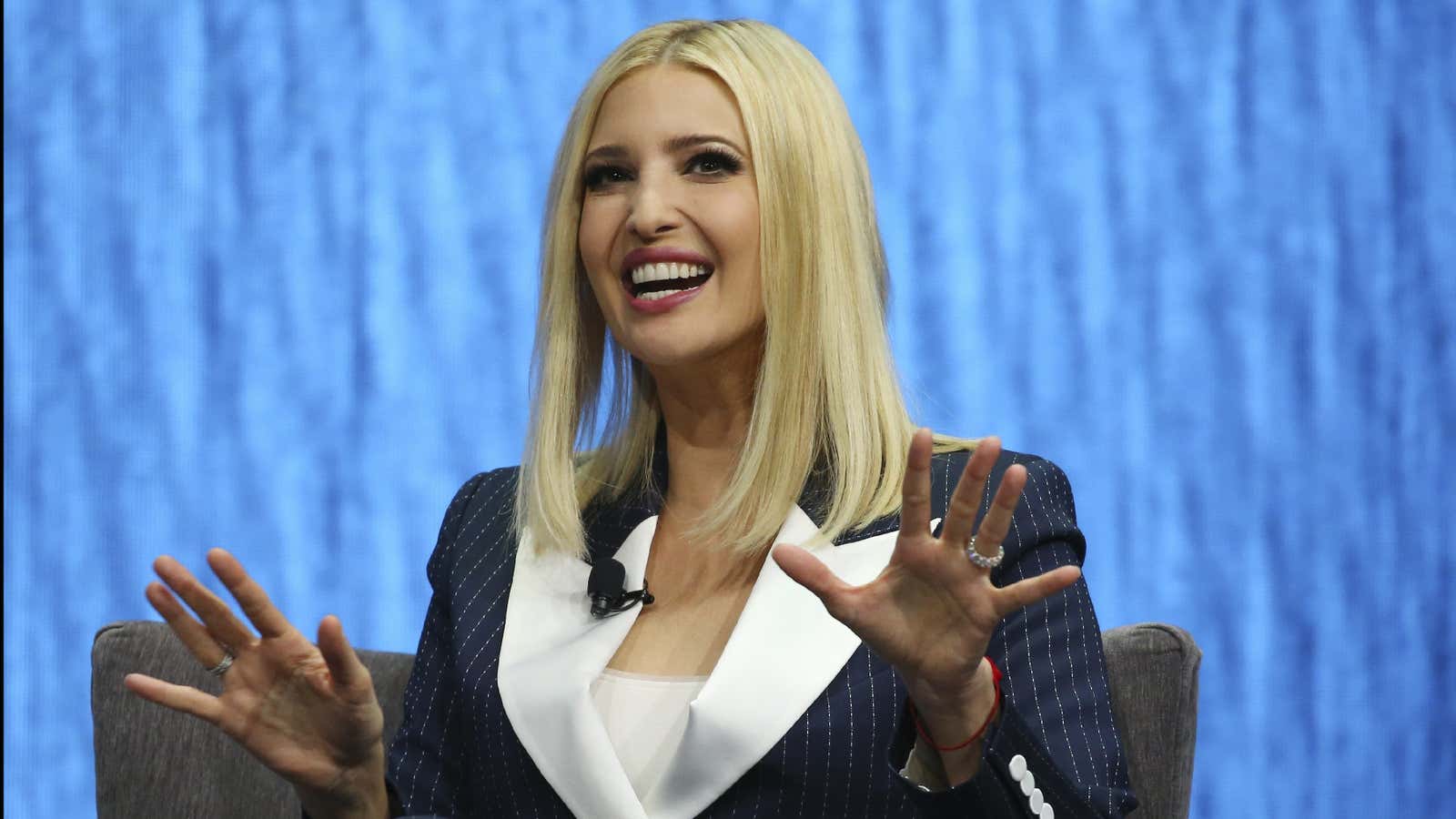Women are sorely underrepresented as speakers at technology events, and those who make it to the stage have to fight to get there. So when Ivanka Trump, a woman with no relevant industry credentials, was invited to be a keynote speaker at the world’s largest technology conference, it understandably frustrated a number of women in the sector.
The president’s daughter and advisor spoke yesterday on “the path to the future of work” in an interview with Gary Shapiro, CEO of the Consumer Technology Association (CTA). The CTA organizes CES, which attracts nearly 200,000 attendees from around the world. Trump, who said she is “a big believer in innovation,” spoke in general terms about White House policies on jobs, updating worker skills, and the role of the private sector.
Criticism of Trump’s presence at the podium slammed the lack of diversity at technology events, much of it infused with backlash against her politics and inexperience.
“Ivanka is not one of us,” tweeted Brianna Wu, referring to women in tech. Wu is a software engineer running for congress in Massachusetts. “Frankly, she would not be welcomed in women in tech circles because her politics harm everything we fight against in our careers.”
“It’s a lazy attempt to emulate diversity – but like all emulation it’s not quite the real thing,” she tweeted.
Rachel Sklar, cofounder of Change the Ratio, an organization working to increase the visibility of women in media and tech, also condemned the decision to invite Trump: “This is a terrible choice on so many levels but also – what an insult to the YEARS AND YEARS of protesting how few women were invited to keynote & being told it was a pipeline problem while similarly-situated men were elevated. There are so many great, qualified women. Shame.”
Just weeks ago, the event software company Bizzabo analyzed the gender diversity of more than 60,000 event speakers over a seven-year period, between 2013 and 2019. Its report found that 63% of speakers at technology events were men. These numbers are reflective of the male-dominated tech industry as a whole. In the US, around 20% of tech workers are women, and in the UK it’s even fewer: 17%.
Last month, when Trump’s presence was announced, tech consultant Carolina Milanesi expressed her anger in a Forbes op-ed: “The reason for my upset is rooted in the fact that there are many more women who are in tech and are entrepreneurs who could run circles around Trump on how technology will impact the future of work.”
The conference is no stranger to diversity issues. In 2017, it was criticized for its all-male lineup of keynote speakers, the second year in a row. In 2018, one of the unsanctioned events was a strip show featuring robot strippers. Scantily clad “booth babes” have also been a staple of the trade show floor; however, the event has introduced a dress code in an attempt to discourage the practice.
This year, the conference is showing some signs of improvement: 10 of the 29 people on stage during the keynotes (including moderators) will be women.
